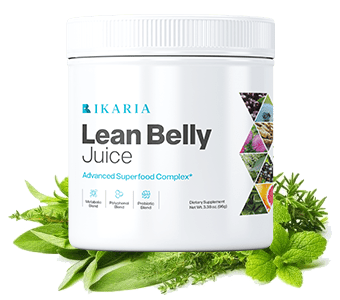
Understanding the essential vitamins your body requires is a cornerstone of maintaining overall health. These nutrients are not just a facet of a healthy diet; they are vital catalysts and protectors that support the body’s myriad functions. Engaging with the best essential vitamins through a balanced dietary intake is crucial for the sustenance of your body’s structural and functional integrity. The list of the top essential vitamins includes a range of vital compounds integral to our system’s harmony and efficiency.
It’s important to remember that each vitamin plays a unique role in contributing to our well-being. While a nutritious diet is the primary source of these nutrients, understanding which essential vitamins for health you may need could benefit you in the long run.
Key Takeaways
- Vitamins play a crucial role in metabolic processes, aiding digestion, growth, and nerve function.
- Recognizing the top essential vitamins can have a profound impact on organ health, including the heart, lungs, and liver.
- A proper intake of these essential nutrients contributes to energy conversion, immune support, and wound healing.
- Both fat-soluble and water-soluble vitamins play distinctive roles yet are equally important in a healthy diet.
- The essential vitamins are not just about preventing deficiencies; they actively contribute to the overall health and vitality of our bodies.
- Guidelines by renown entities like the National Institutes of Health can help assure you’re getting the vitamins your body needs.
Understanding Essential Vitamins and Their Role in Your Daily Health
Essential vitamins are fundamental to maintaining the seamless operation of our body’s systems. The absence of these critical nutrients can lead to deficiencies and health problems, underscoring the importance of a well-rounded dietary regimen. Recognizing the dietary necessities of both men and women, and how the body absorbs these compounds, helps in formulating a balanced nutritional approach for optimal health.
What Are Essential Vitamins?
Vitamins are organic compounds that the body needs in small quantities to sustain life. There are 13 essential vitamins that our body requires, each contributing uniquely to our overall health. Vitamins like B vitamin complex, and vitamins A, C, D, E, and K have specific roles in bodily functions, and an absence of these can result in deficiency-related conditions. While some vitamins, like those essential for women and men, can influence hormonal balance and reproductive health, others might affect parameters such as bone density and immune system effectiveness.
The Science of How Your Body Uses Vitamins
Each vitamin has a unique role in the body, impacting processes ranging from vision to blood clotting and from antioxidant defense to energy production. For example, the body needs vitamin D for calcium absorption to maintain healthy bones and teeth. Similarly, the B vitamins assist in energy metabolism, with each playing a specific part in helping the body convert food into energy.
Distinguishing Between Water-Soluble and Fat-Soluble Vitamins
The solubility of vitamins affects how they are absorbed and stored in the body. Fat-soluble vitamins like A, D, E, and K can be stored in the body’s fat tissues, thus not requiring daily intake from food sources. On the contrary, water-soluble vitamins, including vitamin C and all B vitamins, cannot be stored and therefore must be replenished regularly through diet to prevent deficiencies that can lead to serious health problems.
Recommended Daily Intake: National Institutes of Health Guidelines
The National Institutes of Health recommends specific daily amounts of each vitamin to prevent deficiency. These guidelines vary based on one’s age, sex, and life stage, with different suggestions tailored for essential vitamins for women and essential vitamins for men, comprehensively addressing the body’s needs. For instance, pregnant women are advised to consume higher levels of folate, part of the B vitamin complex, to support fetal development. Following these recommendations can help individuals maintain health and prevent potential issues caused by deficiencies.
| Vitamin | Role in Body | Recommended Intake | Best Food Sources |
|---|---|---|---|
| A | Vision, Immune Function | 900 mcg for men, 700 mcg for women | Carrots, Spinach, Sweet Potatoes |
| C | Antioxidant, Skin Health | 90 mg for men, 75 mg for women | Oranges, Strawberries, Bell Peppers |
| D | Calcium Absorption, Bone Health | 600 IU for adults, 800 IU for 70+ | Fatty Fish, Fortified Milk, Sunlight |
| E | Antioxidant, Cell Protection | 15 mg for adults | Almonds, Sunflower Seeds, Avocados |
| K | Blood Clotting, Bone Metabolism | 120 mcg for men, 90 mcg for women | Kale, Spinach, Brussels Sprouts |
| B Vitamins (Complex) | Energy Metabolism, Red Blood Cell Health | Varies per specific B vitamin | Whole Grains, Meats, Legumes |
Essential Vitamins for Women and Men

Maintaining a healthy diet rich in essential vitamins and minerals is vital for both genders, ensuring the immune system functions effectively, energy levels are optimal, and the health of skin and hair is preserved. While the foundational requirements for vitamins remain consistent, there are certain stages in life, like pregnancy or periods of intense physical activity, where the demand for these nutrients may vary.
It is recommended to take a daily assortment of vitamins or to integrate natural food sources into meals to meet these needs. A health care provider can assess individual nutritional requirements and suggest appropriate supplements, especially for those with dietary limitations or specific health concerns. Below is a guide outlining critical vitamins needed for both women and men, with a special note for requirements including pregnant and breastfeeding women:
| Vitamin | Benefits | Recommended for Women | Recommended for Men | Increased Needs in Pregnancy/Breastfeeding |
|---|---|---|---|---|
| B6 (Pyridoxine) | Energy metabolism, Brain function | 1.2 mg | 1.3 mg | 1.9 mg |
| B12 (Cobalamin) | Energy production, DNA synthesis | 2.4 mcg | 2.4 mcg | 2.6 mcg |
| Folate (Folic acid) | Prevents birth defects, DNA production | 400 mcg | 400 mcg | 600 mcg |
| Vitamin C | Immune system support, Antioxidant | 75 mg | 90 mg | 85 mg |
| Vitamin E | Skin health, Protects cells from damage | 15 mg | 15 mg | 15 mg |
| Vitamin A | Eye health, Skin and hair maintenance | 700 mcg | 900 mcg | 770 mcg |
Engaging with a health care provider before starting any new vitamin regimen is crucial to align with personal health goals and medical history. It ensures a precise approach in optimizing vitamin and mineral intake. A balanced, nutrient-rich diet complemented by necessary vitamin supplements can support a robust immune system, sustainable energy levels, and contribute to healthy, radiant skin and hair.
Essential Vitamins for Specific Health Concerns
Vitamins and minerals play a critical role in our health, arguably none more so than when addressing specific health concerns. From bolstering the immune system to ensuring the integumentary system thrives, and maintaining healthy bones, the right nutrients can make all the difference. Let’s delve into how certain essential vitamins help maintain a robust stature against common health issues.
Immune System Boosters: Vitamins for Resistance Against Illness
In the quest for a fortified immune system, certain nutrients stand out for their protective roles. Vitamins such as C and E, along with the mineral zinc, are pivotal in enhancing the body’s resistance against infections. These essential vitamins for the immune system offer a defense mechanism that helps the body combat pathogens and support the chemical reactions in the body necessary for normal growth and cell development, ensuring that the immune system functions optimally.
Vitamins for Energy: Combating Fatigue with Nutrients
Fighting fatigue isn’t just about getting more sleep; it’s also about fueling your body with the right vitamins for energy. The B vitamins, such as B12 and B6, are renowned for their role in energy production. They assist the body in the conversion of food into energy and can be a significant factor in reducing feelings of tiredness and fatigue. Essential for those leading active lifestyles, these vitamins operate at the cellular level, highlighting just how intricate and vital these nutrients are for maintaining robust energy levels.
Beauty from Within: Vitamins for Hair and Skin Health
Beauty is more than skin deep, and the health of your hair and skin reflects the quality of nutrition you receive. Vitamins A and E play a significant role as essential vitamins for hair and skin health, contributing to the repair and maintenance of these tissues. These fat-soluble vitamins help maintain healthy growth and repair of skin cells, providing a glow that emanates from the inside out. Remember, your diet plays a pivotal role in replenishing these essential nutrients as the body can’t store them in large amounts.
Vitamins to Support Bone Health and Prevent Deficiencies
Our skeletal system is the framework of our body and requires continuous nutritional support. Calcium and vitamin D are cornerstones for bone health, working in tandem to ensure healthy bones and teeth. Without adequate vitamin D, calcium absorption is compromised, which can lead to bone density loss, making blood clotting and healthy bones a challenge. Keeping up with these nutrients is essential for preventing deficiencies and conditions such as osteoporosis, an indication of how some vitamins and minerals play an important role in our long-term wellbeing.
FAQ
What Are Essential Vitamins?
Essential vitamins are organic compounds that the body needs to function properly and maintain overall health. There are 13 essential vitamins, and each plays a vital role in bodily functions, including metabolism, immunity, and the health of bones, teeth, and skin.
The Science of How Your Body Uses Vitamins
The body uses vitamins in various chemical reactions and processes that are essential for everyday functioning. They aid in the conversion of food into energy, support growth and cell repair, contribute to the production of red blood cells, and help maintain healthy skin, eyes, and immune functions.
Distinguishing Between Water-Soluble and Fat-Soluble Vitamins
Water-soluble vitamins, which include the B vitamins and vitamin C, need to be consumed regularly as the body can’t store them and they are expelled through urine. Fat-soluble vitamins, such as vitamins A, D, E, and K, are stored in the liver and fatty tissues for later use by the body. Both types are essential for health but are handled differently within the body.
Recommended Daily Intake: National Institutes of Health Guidelines
The National Institutes of Health provides guidelines for recommended daily intake of vitamins that vary according to age, gender, and life stages. These recommendations aim to prevent nutrient deficiencies and promote optimal health.
Essential Vitamins for Immune System Support
For the immune system, vitamins such as C, E, and B6, along with minerals like zinc, are thought to enhance the body’s ability to fight off infections and diseases.
Best Vitamins for Energy
B vitamins, particularly B12 and B6, are key in maintaining energy levels as they help the body convert food into glucose, which is used for energy.
What Vitamins Are Good for Hair and Skin Health?
Vitamins A and E support healthy skin and hair. Vitamin C is also essential for the production of collagen, which is important for skin elasticity and strength.
Important Vitamins for Bone Health
Calcium, vitamin D, and vitamin K are crucial for maintaining strong bones. While calcium and vitamin D are well-known for their roles in bone health, vitamin K is important for bone metabolism and helping the body absorb calcium.
Are There Vitamins That Help Prevent Deficiencies?
All essential vitamins help prevent deficiencies specific to their functions in the body. For instance, vitamin C prevents scurvy, while a lack of B12 can lead to pernicious anemia. Eating a varied and balanced diet is key to avoiding such deficiencies.
How Can I Ensure I’m Getting Enough Essential Vitamins?
A balanced diet rich in fruits, vegetables, whole grains, lean proteins, and dairy typically provides the necessary vitamins your body needs. However, some people may need to take supplements if their dietary intake is insufficient or if they have increased nutrient needs.
What Role Do Vitamins Play in Blood Clotting?
Vitamin K plays a crucial role in blood clotting by synthesizing proteins that are necessary for the blood to coagulate properly, preventing excessive bleeding.
Can Taking Vitamin and Mineral Supplements Replace a Healthy Diet?
Supplements can help fill nutrient gaps but should not replace a healthy diet. Whole foods offer a complex variety of nutrients, plus fiber and other substances that contribute to good health which supplements cannot fully replicate.
Do Men And Women Have Different Vitamin Requirements?
Yes, men and women have different nutritional needs due to physiological differences. For instance, women often need more iron due to menstruation, and during pregnancy and breastfeeding, increased amounts of certain vitamins such as folate are crucial.
Should Pregnant Women Take Special Vitamin Supplements?
Pregnant women should take prenatal vitamins that contain higher amounts of certain nutrients like folic acid to prevent birth defects and support the baby’s development. It is always important to consult with a healthcare provider before starting any supplementation.






